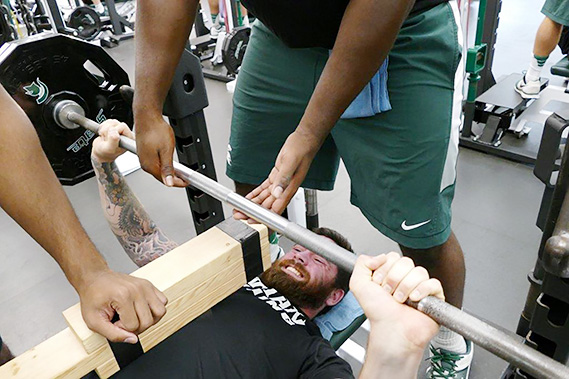Apr 20, 20199 questions to develop your training philosophy
As you develop your training philosophy and methodology, you will be exposed to different ideas. Here are some questions you might ask yourself as you determine if new or different methods are right for your athletes and your program. You are the gatekeeper for your program.
 1. Do these training methods make sense to you? Training methods should be rational and easy to understand. If the methods don’t make sense to you, learn more about them and don’t change your training until you understand the methods and the reasoning behind the methods.
1. Do these training methods make sense to you? Training methods should be rational and easy to understand. If the methods don’t make sense to you, learn more about them and don’t change your training until you understand the methods and the reasoning behind the methods.
2. Is there scientific evidence to support the training? There are principles of training validated by scientific experimentation. Are the training methods you are considering supported by these principles?
3. Do the proposed training methods best fit the age and experience level of your athletes? One size doesn’t always fit all.
4. Are these methods safe for the athlete? Does this training philosophy and methods pass the cost-benefit analysis? (Liability risks versus potential performance gains)
5. Do I have the proper facilities, equipment, time allotment and staff to implement the proposed style of training?
6. Can my staff and I properly demonstrate the exercises?
7. Can I safely test and then evaluate my athletes with these methods? In my opinion, athletes benefit from safely testing and evaluating their training progress. A system of testing and evaluation that provides opportunities for the development of goal setting techniques and recognizes goal obtainment provides valuable life skills training.
8. Am I confident enough with these methods and system to effectively sell them to the sports coaches and most importantly, to the athletes?
9. Is this a wise course of action? Rome wasn’t built in a day, but it came down pretty quick. Choose your course wisely.
Ideas for program improvement
In addition to the above ideas for developing your strength training philosophy, here are 10 coaching strategies to improve your strength program.
1. Accept responsibility for the success of your program.
2. Be present. You can’t coach from the office. You must be physically present at each workout.
3. Go over the rules and expectations of the program and facility before any training begins. Include a written copy. Be consistent in your enforcement of the rules. Make safety first.
4. Keep your facility well-lit and clean, with all weights returned to plate storage after use. Use collars on all barbells.
5. Make sure your workouts are appropriate for the age and experience level of your athlete. Your teaching progressions should advance from simple to more advanced exercises.
6. Consider calling sets, having your athletes begin a set on your command or whistle. Calling the sets will allow you to control the tempo of the workout and help keep the kids more engaged.
7. Don’t overload the room with more athletes than the facility and the coaching staff can handle safely and efficiently.
8. Call your athletes by their name at least once a day.
9. Regularly talk to your athletes about things other than their sport and strength and conditioning.
10. Recognize successful participation in your program. This recognition may begin with simple participation t-shirts for the youngest athletes. Older, more experienced athletes will be on a merit based system. Whatever your award system, make sure your athletes understand it.


